
Reflections on a Creative Writing Workshop for Academics at BU, led by Kip Jones
By Susanne Clarke
(with Trevor Hearing, Caroline Jackson, Mark Readman, Carly Stewart & Peter Wolfensberger)
I am sitting here on a Saturday morning, daunted by the task ahead of me. I am in charge of writing a blog on behalf of a wonderful group of people who I spent a couple of days with at the beginning of January, (oops, I am already overselling myself, I am actually bringing together a blog using material they have given me). The group, as promised has sent me their “postcards”, snippets revealing their inner most reflections of the experience we shared.
Perhaps I’d better reveal more of our journey and tell you a bit about the group. We came together having booked our place at the auspiciously titled “Creative Writing Workshop for Academics” led by the legend that is Kip Jones. I would say it was a journey that we would all do again in a heartbeat.
Kip invited us, compelled us, to discard the shackles of academic or more formal forms of writing; we breathed in deeply and sought to find our inner selves, the child unconstrained by conventions that have both helped and hindered our writing over the years.
So, applying all that I learned from Kip, I am not going to over-analyse my writing and I will go with what feels right. Studying the ‘postcards’ from the group – Peter’s postcard will come first, just because it feels right, he sums up the experience for us all really.
From Peter Wolfensberger:
postcard to myself or
everything matters and nothing really does unless the moment you belong and love – exercise one
Struggling with my thesis I considered the creative writing workshop as a source for inspiration. So, I travelled long distance just to be confronted with myself and who I am and writing the story of my life on a postcard! Really?! Yes, – and no, there is more: Watching two boys on a crowded beach in the twenties has as much to do with me as trying to make sense of dreams that I can never remember. Writing a poem, a script treatment, a story, my story? In the end, it’s all just a tagline away from my thesis… But hey, I belonged to this wonderful group of people who kind of tried to do the same or something very different. Love you all! ‘
A bit more to reveal here with Mark’s postcard:
From: Mark Readman
Dear Group
‘Taglines, poems, life stories on postcards, writing, sharing, reading aloud and, ultimately, bringing my academic work to life through the art of storytelling – what a great way to start the new year!’
Now back to me. The writing is now getting more difficult. I can’t really complete with the beauty of the words conveyed in the postcards. Kip did promise that our first attempts will be quite bad and will need plenty of re-write. So, I walk away, I head off to make a cup of tea and read The Guardian. Nothing much to learn about me from my reading choice, nor, did I expect to learn much from it. I read it because I enjoy a few of the Saturday regulars and primarily because it’s still free on line. I click on one of my favourite columns, “Blind date” and this week’s column looks promisingly uplifting, entitled; “We parted with a kiss”. It was a good read, and I wondered if the format could be borrowed for the blog. And so I try below:
Reflections on our ‘Blind Date’ with Kip
From: Susanne Clarke
The scene: The Group meets each other and Kip for our first “Blind Date”.
What were we hoping for:
Improvement, enlightenment, and perhaps a cry from the heart to help with the struggle that is a life centered around writing, at the very least, some basic hints and tips and a creative start to the year.
What we weren’t expecting, but I think we were all secretly hoping for as Caroline put so well in her postcard, “…one thing that I did take away from the creative writing workshop was passion and confidence in creative writing.”
Our First Impressions:
Positive, the group were warmly welcomed, Kip was laid back, relaxed and we got a sense it was all going to be ok. Kip set us some homework – to recall our night time dreams. I think we were all slightly scared.
What did we talk about:
Everything and anything, somehow Kip got us to reflect deeply, perhaps share things we wouldn’t normally be so bold with. Kip shared intimate reflections with us and made it ok to share back.
Any awkward moments:
There really should have been, we were stretched, we cried, we laughed, however, I don’t recall anything being awkward and I can’t find a hint of this in the postcards.
Although, if I am honest there was a moment for me. When Kip set us the task to create poems from our recollection of recent dreams, as a lifelong fan of Pam Ayres, my poem had to rhyme, consequently, my attempt lacked the depth of feeling conveyed by the poems written and read out loud by others in the group. But it did rhyme. I did feel slightly awkward, mine was rather light, however, in the end it was alright.
Good table manners?
We did lunch as a group, it was a great ending to our adventure, and our table manners were impeccable, as far as I could tell.
Would we introduce Kip to our friends?
A resounding yes, why wouldn’t anyone be less than delighted to meet Kip, and I would happily introduce Kip and the whole group to all my friends.
Describe Kip in three words:
Charismatic, warm and unconventional
What do we think Kip made of us?
He told us we were the best group he had ever taught, he was probably lying. He made us feel special though.
Did you go on somewhere?
This is where I will leave the ‘Blind Date’ format and head to something slightly more hypothetical, we are all now continuing somewhere, we are improved from our experience, but taking different paths. Let’s now share some more postcards from the group. I guess where we go next in our journey remains to be seen.
From: Trevor Hearing
Dear Group
….‘Kip’s Tree of Performative Social Science is a rare species that grows over ground and underground with each workshop I attend, sending hidden signals around the world through its mycelium that it is OK to write about yourself as a source of knowledge because in doing so we are feeding others with the compost of our imaginations. I learned the value of metaphor at this workshop’….
Love Trevor xxx
From: Caroline Jackson
Dear friends,
“…. The interventions offered by Kip and my workshop colleagues were productive in many ways. I came away with the following:
- I like writing.
- I can let go and write something not directly related to an academic output and it be worthwhile.
- Some questions and techniques to use in future writing activities, academic or not.
- Some ideas for my own students on their creative thinking and work.
Wish you were here, love Caroline xxx
From: Carly Stewart
Dear group
…” It opened up my thinking and reconnected me to the heart-felt reason I enjoy academia in the first place. I had time and space to think deeply about ideas and new ways to express them, not for outcome or in the surface skimming tone so often required of us. And the epiphany for me was that dedicating time for creative space did not send me spinning off on a tangent from academia but instead loosened my thoughts and reconfigured them in a way that inspired me to pick up the reins of academic writing once again.”
Love Carly xxx
And finally, from me (Susanne). I spent time with a colleague this week writing with a deadline to submit an abstract. I approached this with more confidence and my biggest lesson from Kip – I could hear his voice, “work on a catchy title” he said this a few times. Our title begins with “Shrek and the Onion…. “ It wouldn’t have done before Kip entered my life and thoughts. Will our abstract take us to the conference in the sun, who knows?
PS We would also like to thank others in the group who are not represented here but who contributed towards the experience.

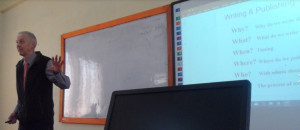

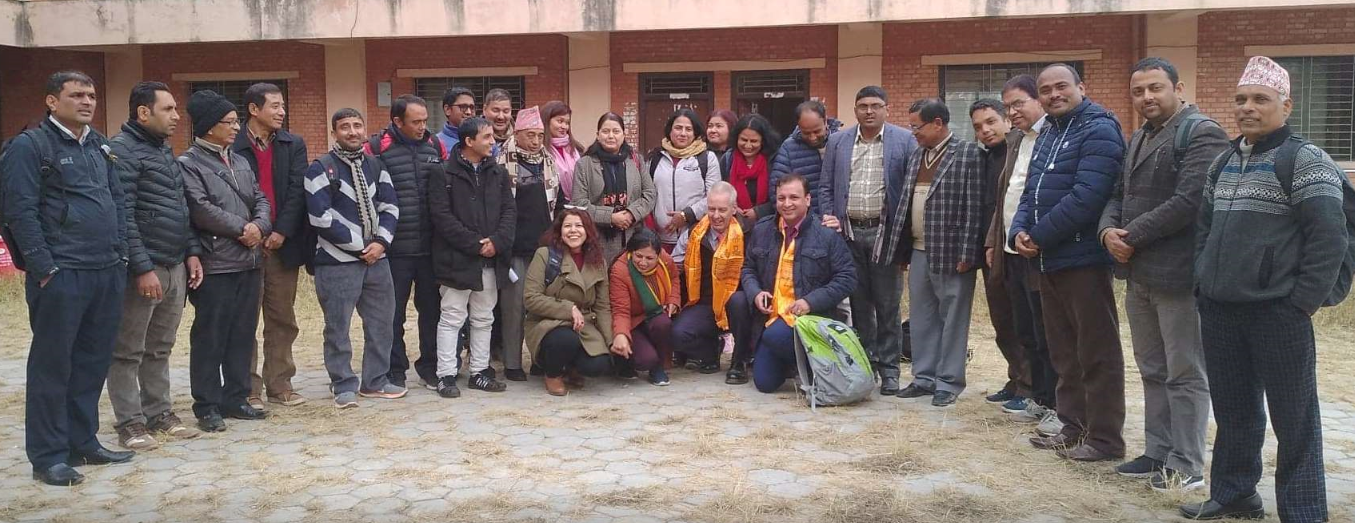
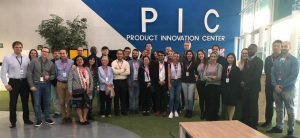
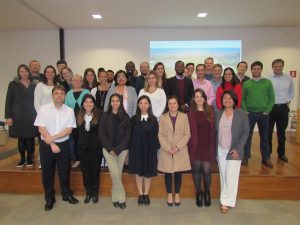
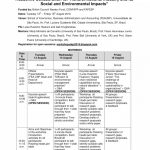
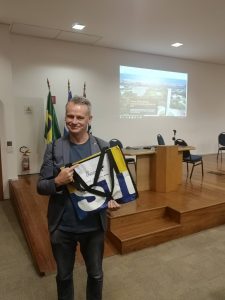


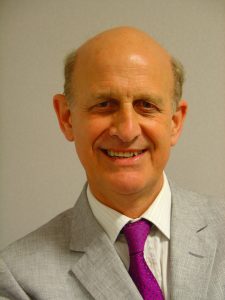
 2 May 2018 (Wednesday)
2 May 2018 (Wednesday)




 Thursday 7th September 2017 – Birmingham
Thursday 7th September 2017 – Birmingham How many acronyms can you fit in one title? The EPSRC are holding two two-day
How many acronyms can you fit in one title? The EPSRC are holding two two-day 










 3C Event: Research Culture, Community & Can you Guess Who? Friday 20 March 1-2pm
3C Event: Research Culture, Community & Can you Guess Who? Friday 20 March 1-2pm Beyond Academia: Exploring Career Options for Early Career Researchers – Online Workshop
Beyond Academia: Exploring Career Options for Early Career Researchers – Online Workshop UKCGE Recognised Research Supervision Programme: Deadline Approaching
UKCGE Recognised Research Supervision Programme: Deadline Approaching SPROUT: From Sustainable Research to Sustainable Research Lives
SPROUT: From Sustainable Research to Sustainable Research Lives BRIAN upgrade and new look
BRIAN upgrade and new look ECR Funding Open Call: Research Culture & Community Grant – Apply now
ECR Funding Open Call: Research Culture & Community Grant – Apply now ECR Funding Open Call: Research Culture & Community Grant – Application Deadline Friday 12 December
ECR Funding Open Call: Research Culture & Community Grant – Application Deadline Friday 12 December MSCA Postdoctoral Fellowships 2025 Call
MSCA Postdoctoral Fellowships 2025 Call ERC Advanced Grant 2025 Webinar
ERC Advanced Grant 2025 Webinar Update on UKRO services
Update on UKRO services European research project exploring use of ‘virtual twins’ to better manage metabolic associated fatty liver disease
European research project exploring use of ‘virtual twins’ to better manage metabolic associated fatty liver disease